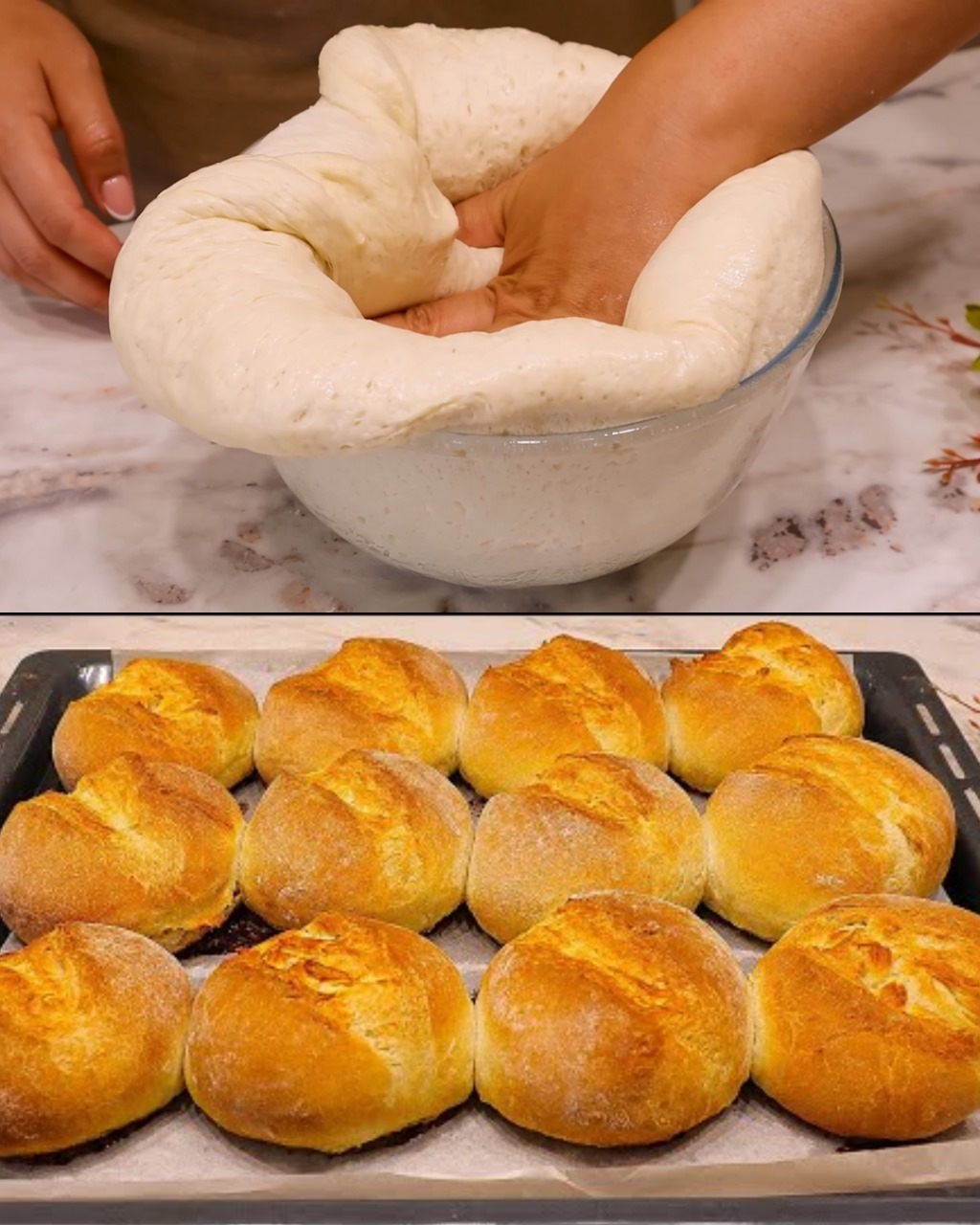ADVERTISEMENT
Activate the Yeast:
In a large bowl, mix together warm water, warm milk, sugar, salt, and yeast. Stir well and let it sit for 5-10 minutes until the yeast becomes frothy.
Add Butter:
Stir in the softened butter until fully incorporated into the liquid mixture.
Add Flour:
Gradually add sifted flour to the wet ingredients, mixing continuously until a soft dough forms. Start with 750 grams of flour and add more as needed to get a smooth dough that isn’t too sticky.
Knead the Dough:
Transfer the dough to a lightly floured work surface. Knead for 2-3 minutes until smooth and elastic. Form the dough into a ball.
First Rise:
Lightly grease a bowl with sunflower oil and place the dough inside. Cover with a clean kitchen towel or plastic wrap and let it rise in a warm place for 1 hour, or until the dough has doubled in size.
Divide the Dough:
Once the dough has risen, punch it down gently to release the air. Divide the dough into 12 equal portions. Roll each portion into a smooth ball.
Rest the Dough Balls:
Place the dough balls on a lightly floured surface. Cover them with a kitchen towel and let them rest for 15 minutes.
Shape the Buns:
After resting, flatten each ball slightly with a rolling pin and shape them into buns. Place them on a baking sheet lined with parchment paper.
Second Rise:
Cover the buns and let them rise in a warm place for 40-50 minutes, or until they’ve puffed up nicely.
Preheat the Oven:
While the buns are rising, preheat your oven to 190°C (370°F).
Add Butter for Flavor:
Melt 50 grams of butter. Gently brush the tops of the buns with melted butter before baking.
Bake the Buns:
Bake the buns in the preheated oven for 25-30 minutes, or until golden brown on top. Rotate the tray halfway through for even browning.
Cool and Serve:
Remove from the oven and let the buns cool slightly on a wire rack. Serve warm, or cool completely for storage.
Serving Suggestions:
These buns are perfect for burgers, sandwiches, or alongside soups and stews.
Slice them in half and toast for a delicious breakfast with jam or butter.
Use them as the base for sliders or mini sandwiches at parties.
Cooking Tips:
Make sure your water and milk are warm (around 100-110°F) to activate the yeast, but not too hot, as this can kill the yeast.
Sift the flour for a lighter, softer texture in the buns.
If your dough feels sticky while kneading, sprinkle a little extra flour on the surface, but avoid adding too much as it can make the buns dense.
Nutritional Benefits:
These buns provide a good source of carbohydrates for energy.
Adding butter enhances the flavor and adds some healthy fats, contributing to the buns’ richness.
Using milk also adds calcium to the recipe.
Dietary Information:
Vegetarian-Friendly: These buns contain dairy but no meat or animal by-products (except for butter).
Easily Adaptable: You can substitute the butter with margarine for a dairy-free version, and use plant-based milk if desired.
Nutritional Facts (per bun, approximate):
Calories: 230
Protein: 5g
Carbohydrates: 40g
Fat: 6g
Fiber: 1.5g
Sodium: 300mg
Storage Information:
Continued on the next page
ADVERTISEMENT
